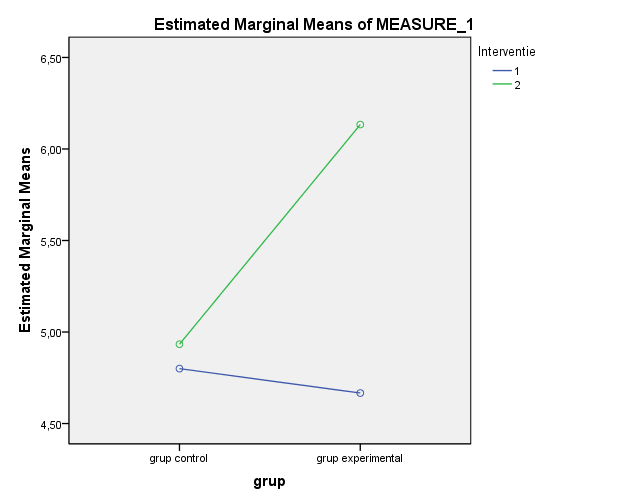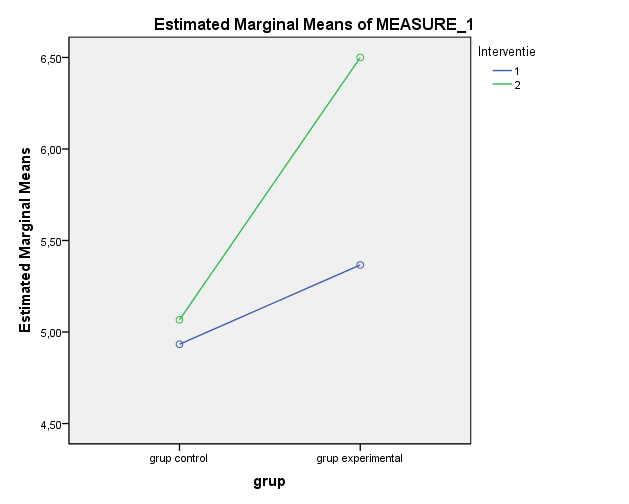Abstract
More and more frequently, there is a discussion about what a support teacher should do to help students with disabilities in mainstream school. The time a child with disabilities or not spends at school offers him invaluable learning opportunities. Lost opportunities at this time can have a major impact on the chances that the child will have in his life. That is why it is vital for those who need additional help to receive appropriate support at the right time. Support needs may arise as a result of any factor that gives rise to a learning barrier, a factor related to social, emotional, cognitive, linguistic, physical or sensory disorders, to the family situation or healthcare they receive. The present paper starts from the following hypothesis: Recovery of students with special educational needs integrated in the mainstream school will be facilitated by the help provided by the support teacher. The research was carried out on a number of 32 students with integrated SENs in 2 schools in Oradea by conducting a psycho-pedagogical experiment in which the support teacher was actively involved in educational and recovery instructive activities for children in the experimental group. The conclusions of the study reveal the important role of the teacher in supporting the proper conduct of educational instructive activities and the recovery of children with various disabilities integrated in mass education, but also the problems with which the support teacher is confronted in everyday work.
Keywords: Integrationinclusiondisabilitysupport teacherrecovery
Introduction
Education is a fundamental human right. Based on this right, the inclusive education, which has as a fundamental principle “teaching for all, together with all”, is now consolidated not only as a desideratum, but also as a reality gaining followers and concretizing in good practices throughout the world (Ciobanu, 2018).
Education should be understood as a lifelong process, starting with the prenatal period. It is not only the responsibility of educators but also of the family and community in which the child is born and raised and must become an internal requirement of each one. Quality education turns into self-education. Responsibility goes from those who promote it to those who are trained. Education for all children is a firm and clear requirement of our age, determined by the acute needs of the present time. The exclusion and isolation of certain categories of individuals or groups of individuals denotes the particular importance currently granted to the re-conceptualization of the education system.
The Romanian education system has numerous controversy and controversy. The overall idea that controls the actions of those responsible for the changes in this system is the improvement of services and their modernization in order to facilitate the access of all types and classes of individuals to education and training (Florescu, 2015). All techniques and strategies for implementing a robust education structure and a method of approaching education based on the student's real needs and abilities should not only address ordinary, but also primary school students and, implicitly, their students, but also children who have deficiencies or difficulties of any kind.
If the beginning of inclusive education in Romania is still hesitant and uncertain, the experience of European countries and their concrete results in this field confirm that these notions are not only valid theoretically but are equally applicable in everyday practice in a beneficial and productive way , not only micro-social but also macro-social. The principle of the inclusive school, enshrined in both national and international legislation, starts from the premise of the rights of all children to education together without considering their physical, intellectual, emotional, or ethnic differentiation at the ethnic, religious, cultural level, trying to as much as possible eradication of discrimination and marginalization of children with special educational needs (Vrăsmaș, 2016).
Thus, a new challenge for teachers in pre-university education is the inclusive education of children with special educational needs, enrolled in general education, in common learning environments alongside their peers. The school must be able to achieve differentiated education and ensure quality education for all children. (Oprea, Marian, & Banciu, 2011).
The new trends in the development and modernization of education impose the necessity of developing support materials for the methodological assurance of the process of school inclusion of children with special educational needs in general education. Adapting the educational offer to the learning opportunities of all children and to the differences in society is a real challenge for modern school. The school should identify, recognize and respond to the diversity of learners' needs by harmonizing learning strategies with teaching technologies as well as different degrees and levels of learning so as to ensure quality education for all, including children with difficulties learning, with adaptation and integration issues.
The practical importance of this work is the need to apply individualized assessment and approach in the context of inclusive education.
The concept of integration / inclusion of children with disabilities in public school appeared as a normal and necessary reaction of society to its obligation to ensure, on the one hand, normalization, on the other hand, the reform of the educational contexts with regard to individuals with special educational requirements.
The United Nations Convention on the Rights of the Child provides that every child has the right to education (Save the Children, "Convention on the Rights of the Child", Bucharest, 2010). Education is imperative: to prepare the child for life, develop the child's respect for human rights and form it in the spirit of tolerance, understanding and peace, and the Salamanca Declaration states that each child has the essential right to education, and everyone must be given the opportunity to reach and stay at an acceptable level of learning (National Institute …, 2006).
Problem Statement
More and more children with disabilities are integrated into mainstream education and, in order to cope with, they need additional support. Until now, this support is and can be provided by: classroom teachers and education specialists, namely: school psychologists, speech therapists, kinesiotherapists, support teachers. The longer the intervention, the more it intervenes, the better the chances of successful recovery of these children. The role of support teacher is essential in recovering these students.
Research Questions
The questions to be answered in this study are:
What is the support teacher's role in recovering children with SEN?
What is the importance of teacher support intervention to support the recovery of children with SEN?
Purpose of the Study
4.1. Purpose and objectives of the research:
-To identify the concrete ways in which the support teacher can be involved in the recovery of children with SEN.
4.2. Research hypothesis
Recovery of students with special educational needs integrated into the mainstream school will be facilitated by the help provided by the support teacher.
Research Methods
Methods used in research: psycho-pedagogical experiment.
5.2. Sample of subjects
The psycho-pedagogical experiment was carried out with a number of 32 students with moderate and mild deficiency in two schools in Oradea. Students are between the ages of 11 and 13, being in the 5th and 6th grades. Affiliation to the experimental group (16 students) and the control group (16 students) was random, depending on the school they were part of. Please note that the support teacher who usually works with the control group students attended the activities with the students in the experimental group that month.
Findings
With a lot of results, we will briefly reproduce some of these.
Initial statistics in Table
We then calculated F (Fisher test) to see whether the independent variable had an effect on the dependent variable, and to see the effect of the interaction between them. F was calculated separately for Romanian Language and for Mathematics.
The results obtained for Mathematics are shown in the following Table
The value of F (1,58) = 82,693, significant at p< 0,01
Therefore, we can say that there are significant differences between the pre-test and the post-test in the results of the student at mathematics, the significance threshold being less than 0.01, confirming that the intervention was successful, by involving the support teacher and the students' performance.

We note that in the pre-test the two groups of subjects (experimental and control) start at roughly equal levels, which has allowed us to assert that there are no significant differences between their level of development. As a result of the intervention, the experimental group achieved significantly better results (from 5 pct to approximately 6,50 pct) while the control group is very close to the starting level, in other words, the intervention was beneficial to the improvement of students performance in Mathematics. (Figure
The results of F for Romanian language are listed in the Table below, no. 3
Also in Romanian language there are significant differences between the pre-test and the post-test, the significance threshold being less than 1%, and in terms of the Romanian language performance, the intervention had the expected effect because the students in the experimental group improved their school results compared to students in the control group.

In Figure
From all of this, we can draw one conclusion: Stimulating the development of students with SEN through the intervention of the support teacher, we get to improve students’ school performance, so the intervention has an effect. It follows that the experimental hypothesis can be verified.
Conclusion
The hypothesis confirmed by statistical data emphasizes the crucial role of the support teacher in everything that means educating and recovering a child with disabilities
The profession of support teacher is one that we consider to be of crucial importance for the recovery of children with special educational needs, and our results confirm that thing. The results at Mathematics and Romanian Language obtained by children, after introducing the specific meetings and activities of the students attended by the support teachers, demonstrating the role of this person in the recovery of children with SEN.All his actions are designed to help the child integrate better, both physically and socially and socially. Individual actions, customized intervention plans created and used in the recovery, the variety of methods and procedures used in collaboration with other specialists involved in education in general and inclusive education in particular are designed to help the child.
References
- Ciobanu, NR. (2018). Comparative Approaches between Regular Education and Special Education in the Context of Inclusive School Practices, International Journal of Humanities, Social Sciences and Education, 5, 12-18, DOI:
- Florescu, M.C. (2015). Managementul instituțiilor de învățământ primar și preșcolar. [Management of primary and pre-primary education]. Oradea: Editura Universității din Oradea.
- Oprea, I., Marian, M., Filimon, L., & Banciu, V. (2011). Recent life experiences: psychometric data in the case of west area of Romania. International Journal of Education and Psychology in the Community, 1(2), 61-78. Retrieved from https://www.ceeol.com/search/article-detail?id=159181
- Vrăsmaș E. (2016). Metodologie privind combaterea discriminării și excluziunii școlare a copilului și tânărului cu cerințe educaționale special prin colaborare și intervenție multidisciplinară. [Methodology on combating discrimination and school exclusion of children and young people with special educational needs through collaboration and multidisciplinary intervention]. București: Editura Arlequin.
- Unicef Convention Romania, CRC/C/ROM/4. (2010). Conventia cu privire la drepturile copilului. [Convention on the Rights of the Child], Bucuresti, Retrieved from https://www.salvaticopiii.ro/sci-ro/media/Documente/Conventia_ONU_drepturile_copilului.pdf
- Institutul Naţional de Cercetare Ştiinţifică în Domeniul Muncii şi Protecţiei Sociale [National Institute of Scientific Research in the Field of Labor and Social Protection] (2006). Reforma sistemelor de securitate social din România în contextul aderării la Uniunea Europeană,[The romanian social security systems in the context of the accesion to European union.]. București. Retrieved from http://www.incsmps.ro/documente/arhiva%20sesiuni/Program%202006.pdf
Copyright information

This work is licensed under a Creative Commons Attribution-NonCommercial-NoDerivatives 4.0 International License.
About this article
Publication Date
15 August 2019
Article Doi
eBook ISBN
978-1-80296-066-2
Publisher
Future Academy
Volume
67
Print ISBN (optional)
-
Edition Number
1st Edition
Pages
1-2235
Subjects
Educational strategies,teacher education, educational policy, organization of education, management of education, teacher training
Cite this article as:
Barth*, K. M. (2019). The Support Teachers Role In The Recovery Of Children Withsen. In E. Soare, & C. Langa (Eds.), Education Facing Contemporary World Issues, vol 67. European Proceedings of Social and Behavioural Sciences (pp. 861-867). Future Academy. https://doi.org/10.15405/epsbs.2019.08.03.103
